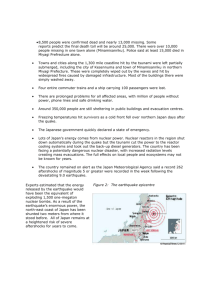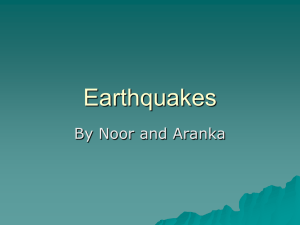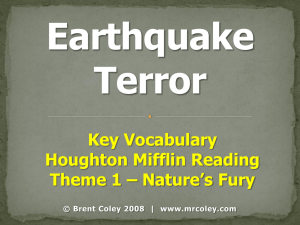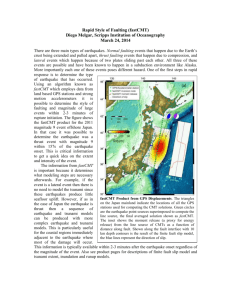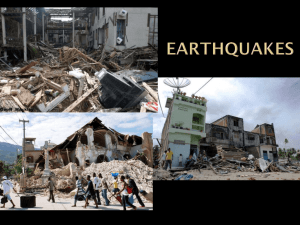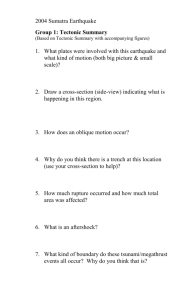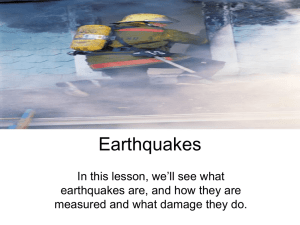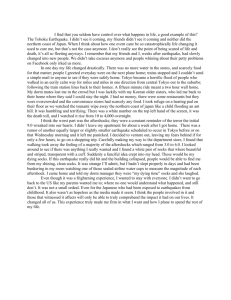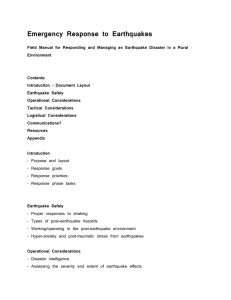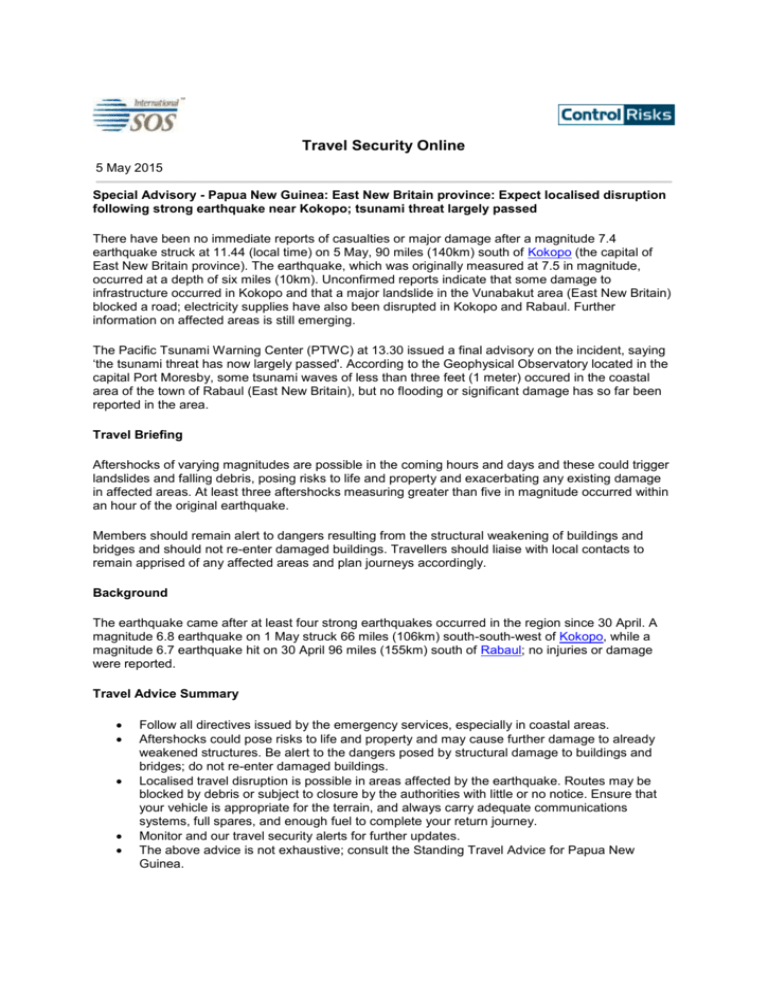
Travel Security Online
5 May 2015
Special Advisory - Papua New Guinea: East New Britain province: Expect localised disruption
following strong earthquake near Kokopo; tsunami threat largely passed
There have been no immediate reports of casualties or major damage after a magnitude 7.4
earthquake struck at 11.44 (local time) on 5 May, 90 miles (140km) south of Kokopo (the capital of
East New Britain province). The earthquake, which was originally measured at 7.5 in magnitude,
occurred at a depth of six miles (10km). Unconfirmed reports indicate that some damage to
infrastructure occurred in Kokopo and that a major landslide in the Vunabakut area (East New Britain)
blocked a road; electricity supplies have also been disrupted in Kokopo and Rabaul. Further
information on affected areas is still emerging.
The Pacific Tsunami Warning Center (PTWC) at 13.30 issued a final advisory on the incident, saying
‘the tsunami threat has now largely passed'. According to the Geophysical Observatory located in the
capital Port Moresby, some tsunami waves of less than three feet (1 meter) occured in the coastal
area of the town of Rabaul (East New Britain), but no flooding or significant damage has so far been
reported in the area.
Travel Briefing
Aftershocks of varying magnitudes are possible in the coming hours and days and these could trigger
landslides and falling debris, posing risks to life and property and exacerbating any existing damage
in affected areas. At least three aftershocks measuring greater than five in magnitude occurred within
an hour of the original earthquake.
Members should remain alert to dangers resulting from the structural weakening of buildings and
bridges and should not re-enter damaged buildings. Travellers should liaise with local contacts to
remain apprised of any affected areas and plan journeys accordingly.
Background
The earthquake came after at least four strong earthquakes occurred in the region since 30 April. A
magnitude 6.8 earthquake on 1 May struck 66 miles (106km) south-south-west of Kokopo, while a
magnitude 6.7 earthquake hit on 30 April 96 miles (155km) south of Rabaul; no injuries or damage
were reported.
Travel Advice Summary
Follow all directives issued by the emergency services, especially in coastal areas.
Aftershocks could pose risks to life and property and may cause further damage to already
weakened structures. Be alert to the dangers posed by structural damage to buildings and
bridges; do not re-enter damaged buildings.
Localised travel disruption is possible in areas affected by the earthquake. Routes may be
blocked by debris or subject to closure by the authorities with little or no notice. Ensure that
your vehicle is appropriate for the terrain, and always carry adequate communications
systems, full spares, and enough fuel to complete your return journey.
Monitor and our travel security alerts for further updates.
The above advice is not exhaustive; consult the Standing Travel Advice for Papua New
Guinea.
Please do not reply to this email.
Assistance Centres
You can contact the following Assistance Centres:
Philadelphia, US: (1) (215) 942 8226
Singapore: (65) 6338 7800
London, UK: (44) (20) 8762 8008
Paris, France: (33) 155 633 155
Dubai, UAE: (971) 4 601 8777
To unsubscribe
To unsubscribe, please log on to your membership page, portal or Travel Security Online, your travel
security information website provided by the joint venture of International SOS and Control Risks and
remove your email registration.
Advice provided in this email represents the best judgment of AEA International Holdings Pte. Ltd.
and Control Risks Group Holdings Ltd. Advice in this email does not however provide a warranty of
future results nor a guarantee against risk.
2015 AEA International Holdings Pte. Ltd. and Control Risks Group Holdings Ltd. All rights reserved.
Reproduction (other than for authorised internal purposes) is prohibited except with the prior written
consent of the copyright owners.

